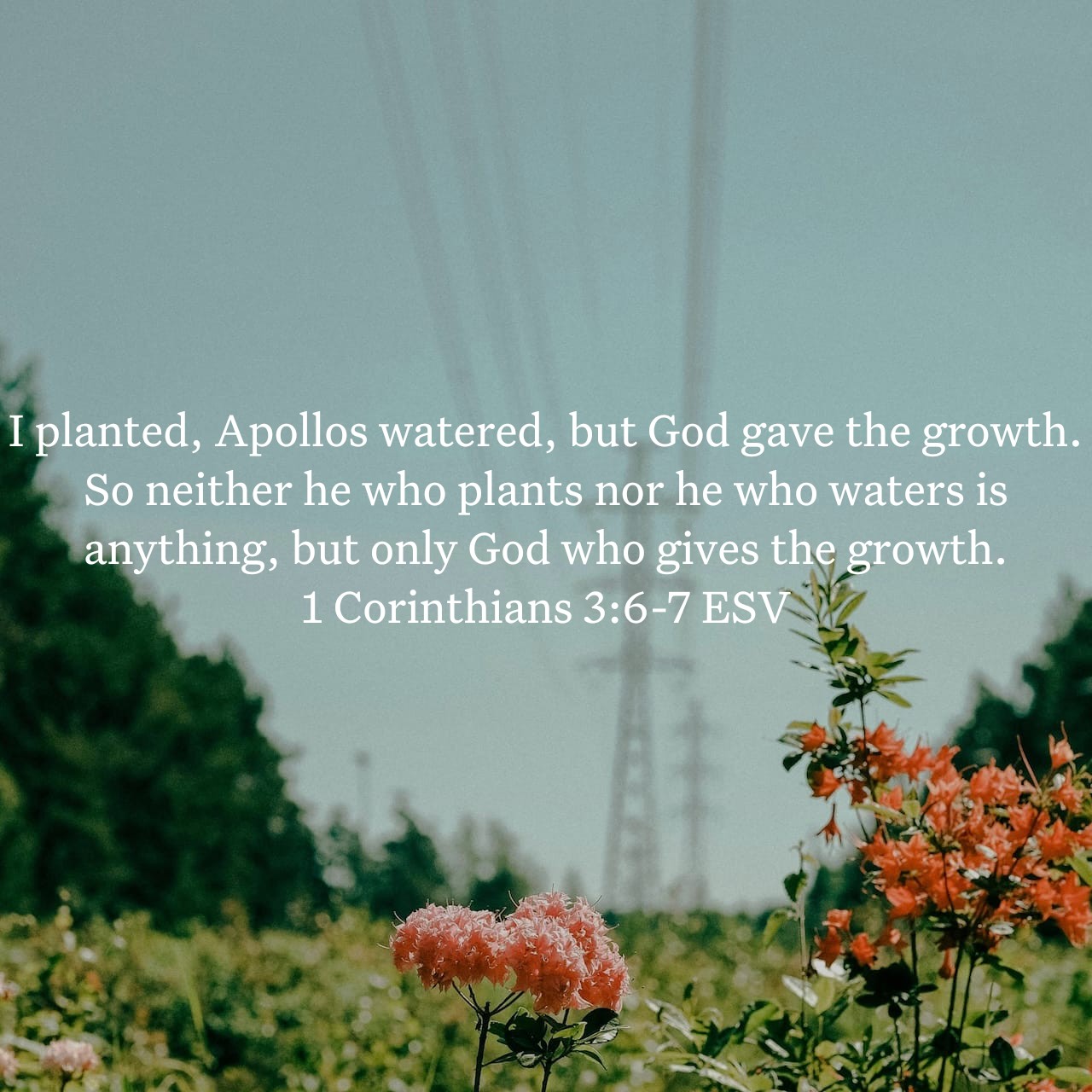Devotional 25 October 2025

The true mark of spiritual maturity is not how much one knows, but how one views oneself and others in light of God’s sovereign work. After exposing the Corinthians’ worldly divisions, Paul turns their attention to the very men they were exalting. “What then is Apollos? What is Paul?” With that question, he dismantles their pride. Neither Paul nor Apollos is the foundation of their faith. They are simply servants, diakonoi, channels through whom God brought belief. The Lord Himself determined their roles and boundaries. Paul planted; Apollos watered; but God alone caused the growth.
This image of a field reveals how little power human labor truly has apart from divine blessing. The sower and the waterer can be faithful, but they cannot command life. Only God can cause seed to sprout (Isa 61:11). In the same way, Christ declared, “Apart from Me you can do nothing” (John 15:5). Every true conversion, every act of repentance, every deepening of faith is evidence of His sovereign grace, not human achievement. When Paul says, “Neither he who plants nor he who waters is anything,” he is not demeaning ministry, but putting it in its rightful place under God’s authority.
The phrase Theou esmen synergoi, “we are God’s fellow workers” reminds us that ministers are not God’s equals or partners in ownership, but His servants belonging to Him. The emphasis in Greek is possessive: they are God’s workers, and the church is God’s field and God’s building. This double image links to Paul’s next section, where he will describe the church as God’s temple, constructed upon Christ Himself (Eph 2:19–22).
For us, the lesson is clear: no teacher, preacher, or leader is the source of life. Faith is not a human enterprise but the work of God who gives the increase. To idolize the planter or the waterer is to misunderstand the miracle of growth. True spirituality recognizes that every faithful servant shares one purpose—to glorify the One who gives life. The Church is His garden, His house, His possession. And our joy is not to be the architect, but the faithful laborer, tending what belongs to Him.